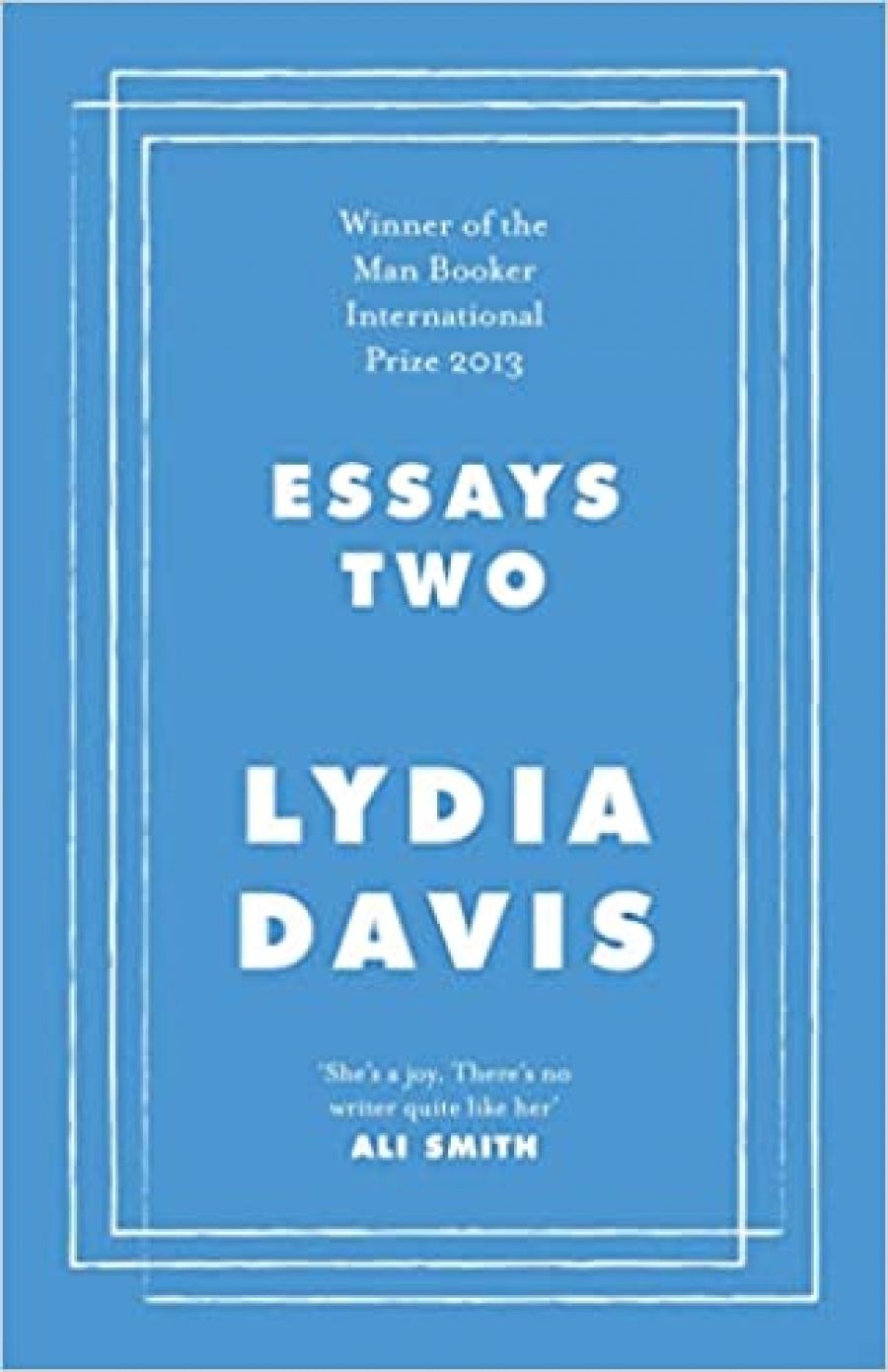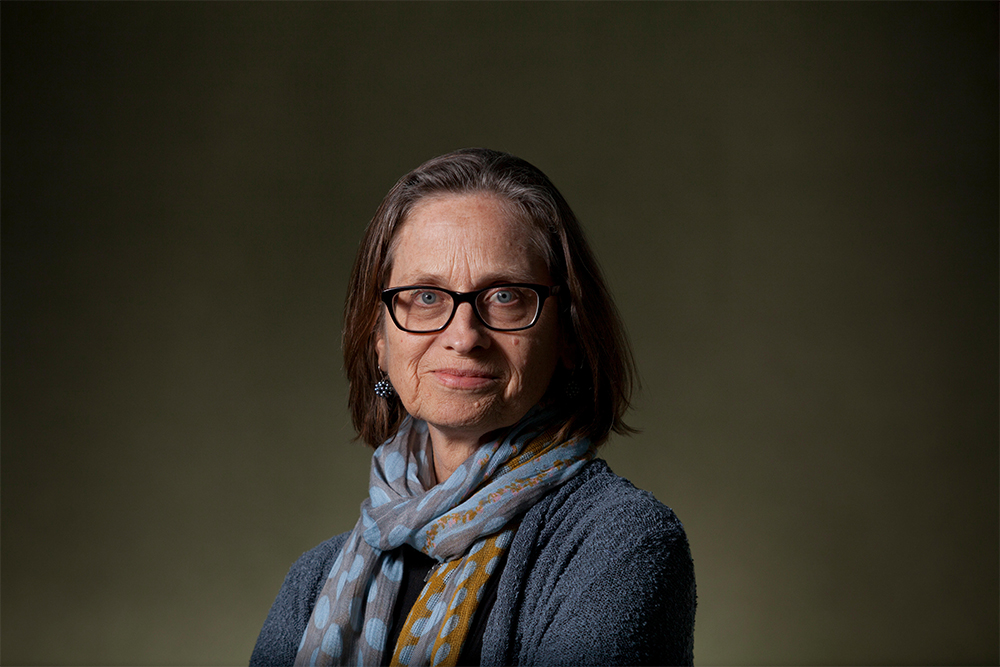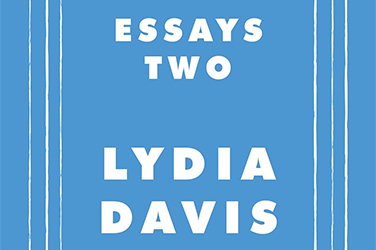
- Free Article: No
- Contents Category: Essay Collection
- Review Article: Yes
- Article Title: ‘Zut, Zut, Zut, Zut’
- Article Subtitle: Lydia Davis’s mawkish idea of translation
- Online Only: No
- Custom Highlight Text:
Lydia Davis writes long essays and short stories; some of them, like this one of six words, very short indeed: ‘INDEX ENTRY: Christian, I’m not a’. Influenced by Kafka and Beckett, she is drawn to Anglo-Saxon words, complex sentences, and literary forms which are hard to define. In the United States she has been awarded Guggenheim and MacArthur Genius Grants; in France she is a Chevalier of the Order of Arts and Letters; in the United Kingdom she won the 2013 Man Booker International Prize for what Christopher Ricks, chair of the judges, called her ‘vigilance … to the very word or syllable’. Rick Moody calls her ‘the best prose stylist in America’, The New York Times compares her precision to that of Vermeer, while for her publisher she is simply ‘beyond compare’. Claire Messud, looking for fresh adulatory epithets, says that Lydia Davis ‘has the gift of making us feel alive’. What, then, am I missing?
- Article Hero Image (920px wide):

- Article Hero Image Caption: American writer Lydia Davis (photograph by Gary Doak/Alamy)
- Alt Tag (Article Hero Image): American writer Lydia Davis (photograph by Gary Doak/Alamy)
- Featured Image (400px * 250px):

- Alt Tag (Featured Image): Frances Wilson reviews 'Essays Two: On Proust, translation, foreign languages, and the City of Arles' by Lydia Davis
- Book 1 Title: Essays Two
- Book 1 Subtitle: On Proust, translation, foreign languages, and the City of Arles
- Book 1 Biblio: Hamish Hamilton, $45 hb, 587 pp
- Book 1 Readings Link: booktopia.kh4ffx.net/Eaj73K
Davis’s art as an essayist is to organise her thoughts into numerical lists, sub-lists, bullet points, and Q&As, with a preference for Top Tips. She creates order by breaking things down; one of her stories is even called ‘Break It Down’. In Essays One (2019), a selection of pieces on reading and writing, she offers ‘Thirty Recommendations for Good Writing Habits’, including the suggestion that writers keep observational notes. ‘Question: can you figure out three reasons why trees were planted along this canal in a French city? My answer, noted in notebook: a. trees planted along canal for three reasons: shade for boatmen, help slow evaporation of water, hold earth in banks. Often planted at exactly equal intervals.’
Essays Two, composed of introductions, afterwords, blogs, lectures, speeches, and articles, concentrates on Davis’s work as a translator, specifically of Swann’s Way, the first volume of Proust’s In Search of Lost Time.
Davis’s Proust is praised for being less cluttered than that of C.K. Scott Moncrieff, who liked to ramify his sentences, but while her translations, like her fiction, are kept on a tight leash, her essays have a loose, meandering gait. As an advocate for verbal precision, she curiously did not cut Essays Two – weighing in at nearly 600 pages – to half its length. Instead, she bulks it out: her opening essay, ‘Twenty-One Pleasures of Translating (and a Silver Lining)’, is an expanded version of a piece first published in the New York Review of Books called ‘Eleven Pleasures of Translating’, which was subsequently published in another journal as ‘Seventeen Pleasures of Translation’. A writer’s second, or third, thoughts are rarely a good idea and there is no apparent reason for the extension of the NYRB essay because the twenty-one pleasures boil down to two: ‘(1) the pleasure of writing; and (2) the pleasure of solving a puzzle’. By the time she reaches the fourteenth pleasure, Davis sounds like a rambling after-dinner speaker getting into her stride: ‘And there is another pleasure, for someone like me who am not really a scholar – and that is the pleasure of scholarship, or one aspect of scholarship, or what perhaps just reminds me of scholarship: the very painstakingly thorough research into the material in the book I am translating.’ This painstaking research, she says, is ‘sometimes biographical’, although in a later essay she explains that she did not allow any biographical knowledge of Proust to ‘come between’ herself and the words on the page.
At the heart of Essays Two is a 100-page ‘Alphabet (in Progress) of Proust Translation Observations, from Aurore to Zut’. This consists of problems encountered during the process of breaking down Proust’s ‘hypotactic’ sentences and building them up again so as to maintain his rhythms and meanings. How, for example, did Davis find equivalents for the terms ‘S’amuser’ or ‘Avoir’, and tackle Proust’s alliteration? We learn that ‘Zut, Zut, Zut, Zut’, translated by Scott Moncrieff and Davis as ‘Damn, Damn, Damn, Damn’, was translated by Terence Kilmartin as ‘Gosh, gosh, gosh, gosh’ and by James Grieve as ‘Oh, dash it all! Dash it all! Dash it all!’
Davis begins her translations ‘blind’: before embarking on Swann’s Way she had read only two-thirds of the book, and that was a good twenty-five years earlier when she was living in France. She has publicly acknowledged that since completing the translation she has still not read the other six volumes of Proust’s masterpiece. There is no suggestion, when she makes these revelations, that Davis is saying anything that might shock us: it is assumed that her interest is in translation rather than in literature itself. This is made clear in the section on ‘Translating from English into English’, where she describes ‘modernising’ Laurence Sterne’s A Sentimental Journey (1768), so as to make it easier for the contemporary reader to consume. Here are the opening lines of Sterne’s novel:
——They order, said I, this matter better in France.—
—You have been in France? said my gentleman, turning quick upon me with the most civil triumph in the world.
Strange! quoth I, debating the matter with myself, That one and twenty miles sailing, for ‘tis absolutely no further from Dover to Calais, should give a man these rights—I’ll look into them.
Here is Davis’s translation:
‘They manage this sort of thing better in France,’ I said.
‘Have you been to France?’ asked the gentleman, turning to me quickly with a most courteous sort of triumph.
‘Strange,’ I said, thinking it over. ‘The fact is that simply by sailing twenty-one miles—it isn’t any farther from Dover to Calais—one acquires these rights. I’ll have to look into it.’
What on earth was the point of this exercise? What is gained by replacing dashes with inverted commas, by reversing ‘said I’ to ‘I said’, or exchanging ‘turning quick upon me with the most civil triumph in the world’ to ‘turning to me quickly with a most courteous sort of triumph’, thus stripping the line of its irony? Even Davis is pushed to explain herself: ‘Maybe I could have avoided sacrificing so much of Sterne’s eccentricity. I don’t know yet; I’ll see what I think when I come back to read it in a few years.’ Pondering the possibility of turning Finnegans Wake ‘into easier English’, she concludes that to do so would ‘lose most of the character of the book’. Most of?
In ‘Translating Bob, Son of Battle’, Davis takes us, stage by stage, through her mutilation of a Victorian children’s book about a trusty sheepdog called Owd Bob, before conceding that, ‘Doing this translation raised the question … of whether it ought to be done at all.’ The sixty-page essay is broken down into bite-sized segments with their own headlines: ‘MY FIRST READING OF IT’, ‘THE BOOK SEEMED TO HAVE BEEN FORGOTTEN’, ‘I CONCEIVE THE PROJECT’, ‘“TRANSLATING” THE BOOK INTO MORE STANDARD AND SIMPLER ENGLISH.’ Shedding the dialogue of its Cumbrian dialect, its ‘sentimentality’, and its ‘Stereotyping of Women’, Davis shows us the improvement: instead of having what his owner calls ‘the brains of a man and the way of a woman’, Bob is now described as being ‘As clever as any person and as gentle as the spring sunshine’. This, to my ear, is mawkish and twee and not at all what was meant by the original description.
In a segment called THE UNEXPECTED PLEASURES OF THE PROJECT, EXPLORING AND LEARNING ABOUT THE CULTURE OF THE BOOK, AND THE EXPANDED EDITION I NEVER PREPARED, WITH ENDNOTES I NEVER INCLUDED, Davis describes her discovery of Cumbria, ‘a county in the northwest of England, one of the most sparsely populated in the UK, the birthplace of William and Dorothy Wordsworth, Thomas De Quincey, Samuel Taylor Coleridge, Beatrix Potter, and Stan Laurel (of Laurel and Hardy)’. Some biographical precision might have come in handy because Thomas De Quincey was born in Manchester, Coleridge in Devon, and Beatrix Potter in London.
De Quincey described an essay by Edmund Burke as a process of moving forward through unpredictable terrain. Having planted a seed, Burke ‘GROWS a truth before your eyes’. An essay by Lydia Davis, on the other hand, is like being shown a row of neatly trimmed box hedges.


Comments powered by CComment